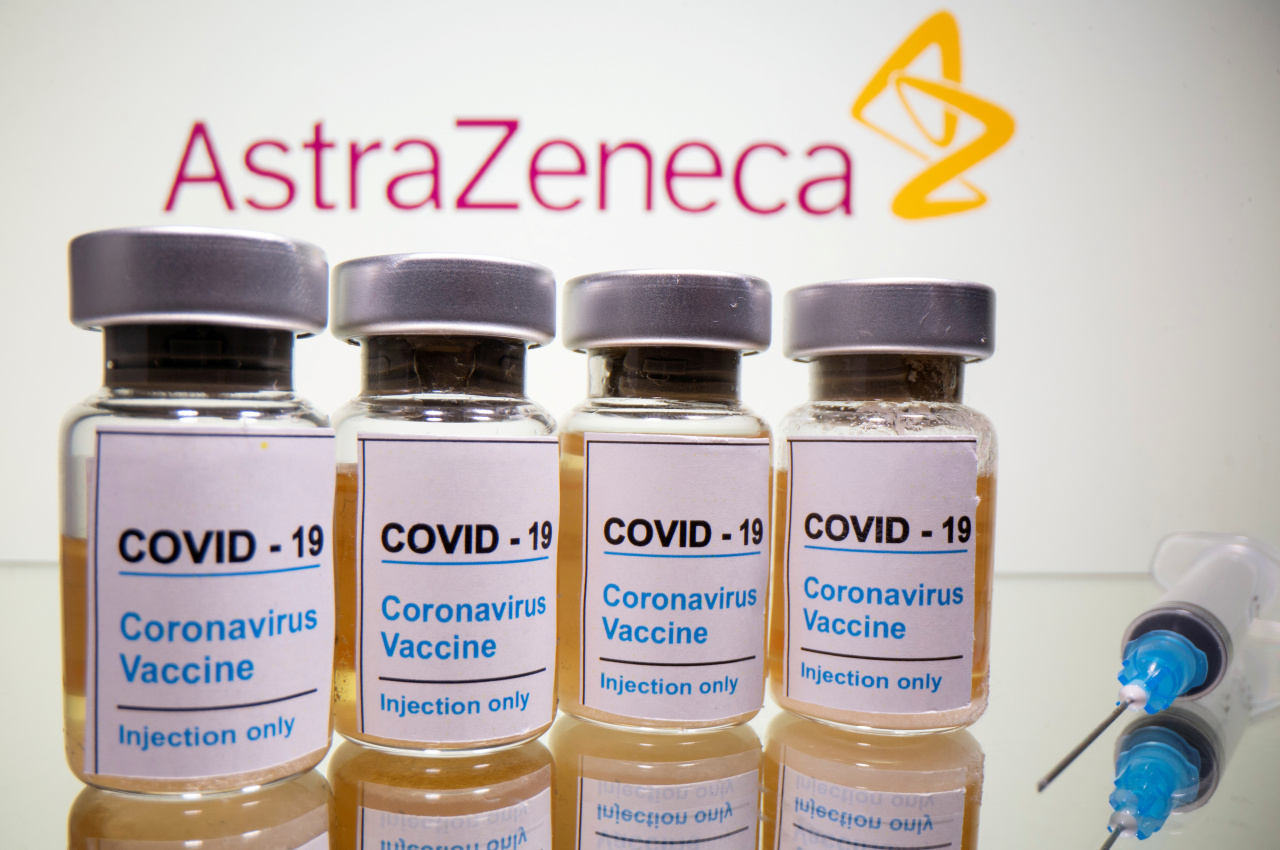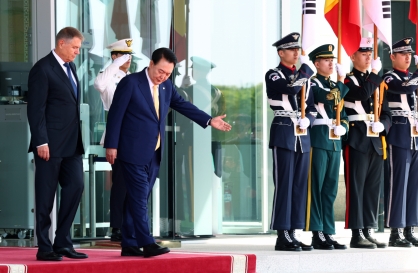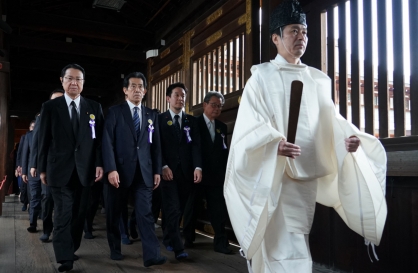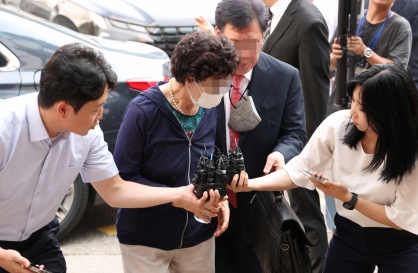Fresh talks have started in Korea to decide whether workers should be given time off in case they suffer side effects following COVID-19 vaccinations.
In a news briefing Wednesday, the Ministry of Health and Welfare said it may recommend workplaces permit workers to take unpaid time off without having to use up their regular leave. Whether to actually institute post-vaccination leave would remain up to the employer to decide.
Since the vaccines began rolling out to front-line workers and nursing home residents in late February, many have complained of side effects that aren’t dangerous or life-threatening, but nonetheless temporarily debilitating.
In interviews with The Korea Herald, health care workers most commonly recounted “flu-like symptoms” ranging from fever, chills and exhaustion to muscle aches.
Emergency medicine specialist Dr. Nam Koong-in, 37, who received his first AstraZeneca vaccine dose on March 12, said his post-jab reaction “was worse than (he) had imagined.”
He said he started having a fever about 12 hours after the jab, which went on for about two days. “But the sore arm and general feeling of unwellness lasted longer than that, I think,” he said.
“I don’t think I’m unique in my experience. All of us at the emergency department got the vaccine and came down with similar symptoms,” he said.
He said he has been seeing freshly vaccinated people coming to the ER, most of whom had to be sent away for fever and other symptoms that can happen after vaccination, but which could also be signs of COVID-19.
He said such high turnout of vaccine recipients at emergency medical services was worrying, given that most people receiving them now were health care workers who have more knowledge of the vaccination experience.
“Once the rollout reaches the public, there’s going to be a lot more confusion,” he said.
The Korea Disease Control and Prevention Agency said it was to help people differentiate the expected side effects from true adverse events.
Initially, the agency had advised vaccine takers against visiting clinics and hospitals for the side effects. But after European regulators warned of possible blood clot risks last week, it is now advising people to seek medical attention when unusual symptoms are suspected following vaccinations. Such symptoms include headaches, swelling in an arm or leg, breathlessness and bruising.
The agency said Monday that there have been two confirmed cases of anaphylaxis, which is a severe allergic reaction, among AstraZeneca vaccine recipients in the country, both of whom have fully recovered.
One paramedic in his 20s, who fell ill with a headache after taking a dose of the AstraZeneca vaccine, has been diagnosed with cerebral venous sinus thrombosis -- a highly unusual type of clotting in the brain that has been reported at a higher than expected rate among the vaccine’s recipients in Europe, according to the European Medicines Agency. The vaccine’s link to the condition is still being investigated.
Nowon Eulji University Hospital’s pediatric infectious disease specialist Dr. Eun Byung-wook, who received his first dose of the AstraZeneca vaccine in early March, said he too had battled a slight fever and headache that went away after taking a pain reliever.
“Most of the adverse events following AstraZeneca vaccinations can only be anecdotal at this point, and there isn’t an official estimate, but I would say about as many as 40 percent of those who get the vaccine come down with these side effects from what we’ve seen so far.”
He said that the high rates of temporary side effects “shouldn’t scare anyone.”
“Generally speaking, younger people would react more strongly to the vaccine.” He added that sharing these experiences “can help people understand what to expect so there’s less panic once the vaccine gets to the wider public.”
International Vaccine Institute Director General Dr. Jerome Kim said, “Different populations definitely have different reporting of symptoms. From the AstraZeneca vaccine, the side effects are definitely greater than with a comparator -- non-COVID vaccine.”
Kim said that based on the published data, the side effects following AstraZeneca and Pfizer vaccinations “are not that different.”
“It’s crucial that people understand timing and causality are not linked,” he said. “The AstraZeneca vaccine may have a bit less fever, but more feverishness (a feeling of fever without a high temperature).”
As for giving people time to recover after vaccination, he said, “Following COVID-19 protocols, one should not go to work with a fever anyway.”
According to a preliminary survey conducted by Dr. Ma Sang-hyuk, the Korean Vaccine Society’s vice president, nearly 80 percent of the 250 health care workers given COVID-19 vaccines replied they experienced systemic reactions. The most commonly reported symptoms were body aches (73 percent), tiredness (59 percent), fever of over 38 degrees Celsius (43 percent), loss of appetite (33 percent) and nausea (4 percent).
Well over half -- 193 -- of the respondents said they had taken pain relievers, and 25 had to be treated with an IV-administered fever reducer. Nine had sought help at emergency rooms or clinics. Ten had taken one or multiple days off work.
Younger recipients tended to experience more severe reactions. While almost all of those in their 20s said they had suffered these side effects, only about 1 in 3 of those in their 60s said they did.
So far, 643,724 people in Korea have been inoculated with at least one dose of AstraZeneca’s COVID-19 vaccine, and 59,888 people with Pfizer’s.
More Pfizer vaccine doses for 250,000 people hit Incheon Airport on Wednesday morning, with more of the same vaccine doses for 250,000 people slated for shipment next week, according to the government.
By Kim Arin (
arin@heraldcorp.com)

![[Exclusive] Korean military set to ban iPhones over 'security' concerns](http://res.heraldm.com/phpwas/restmb_idxmake.php?idx=644&simg=/content/image/2024/04/23/20240423050599_0.jpg)

![[단독] 육해공군 본부 아이폰 금지 검토…전군 확대 가능성](http://res.heraldm.com/phpwas/restmb_idxmake.php?idx=644&simg=/content/image/2024/04/23/20240423050709_0.jpg)



![[Pressure points] Leggings in public: Fashion statement or social faux pas?](http://res.heraldm.com/phpwas/restmb_idxmake.php?idx=644&simg=/content/image/2024/04/23/20240423050669_0.jpg)
